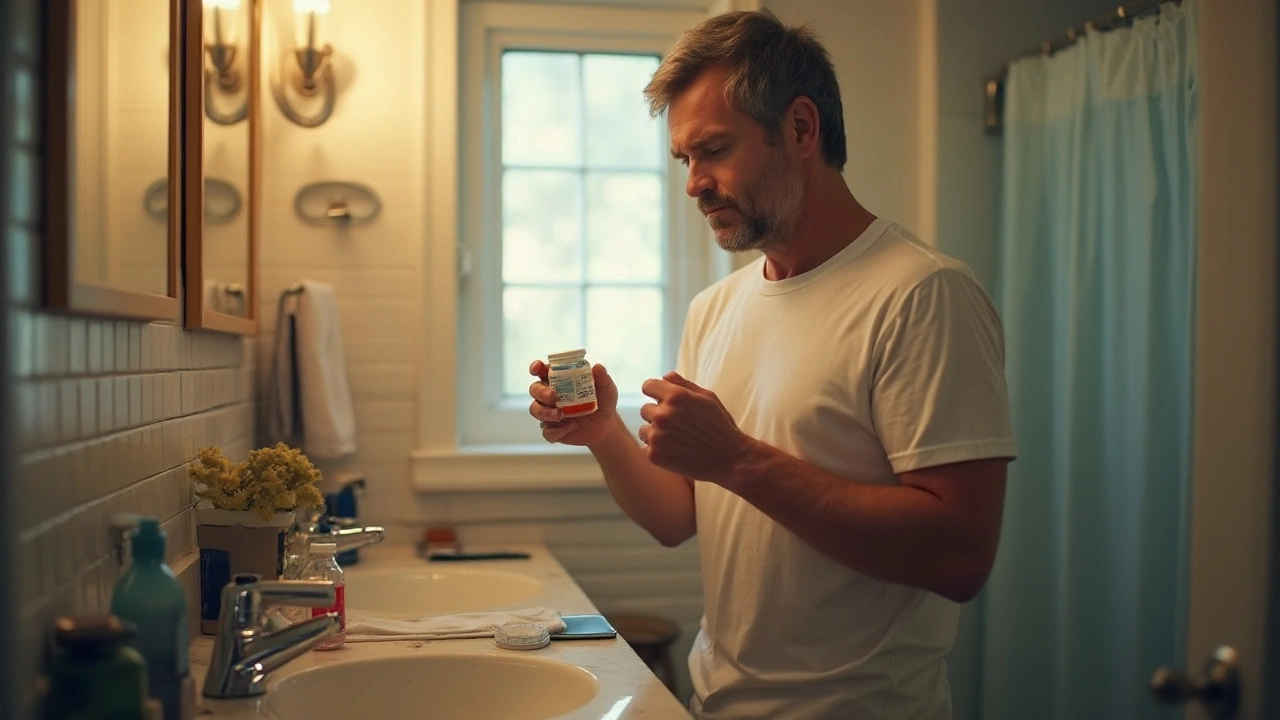Prostate Health: Simple Tips for a Happy Gland
Most men think the prostate is a mystery, but it’s just a small gland that can cause big problems if you ignore it. Keeping it in good shape doesn’t need a PhD—just a few everyday moves and a quick check‑up now and then.
Why Prostate Health Matters
The prostate helps make semen and controls part of the flow of urine. When it swells or gets inflamed, you might notice frequent bathroom trips, a weak stream, or that uncomfortable “pressure” feeling. Those signs are common, but they can also point to bigger issues like benign prostatic hyperplasia (BPH) or prostate cancer.
Early detection is the best defense. A simple blood test called PSA (prostate‑specific antigen) and a doctor’s digital exam can spot trouble before it hurts. If you’re over 50, or 45 with a family history, aim for a yearly check‑up. Talk to your doctor about how often you need it—some men only need it every two years.
Everyday Habits That Support Your Prostate
Eat a balanced diet. Foods rich in lycopene (tomatoes, watermelon, pink grapefruit) and omega‑3 fats (salmon, walnuts) have been linked to lower prostate trouble. Swap out processed meats for lean poultry or beans, and add a handful of nuts for healthy fats.
Stay active. Regular walks, cycling, or light weight work keep blood flowing to the pelvic area. Aim for at least 150 minutes of moderate activity each week. Even a short daily stretch can help reduce inflammation.
Watch your fluids. Too much caffeine or alcohol can irritate the bladder and make you feel the urge more often. Try to limit coffee to two cups a day and keep alcohol to occasional drinks.
Maintain a healthy weight. Extra belly fat increases hormones that can fuel prostate growth. Losing even 5‑10% of body weight can improve urinary symptoms.
Consider supplements wisely. Some men find saw‑tooth oak extract, zinc, or vitamin D helpful, but evidence varies. Talk to a pharmacist or doctor before adding anything new, especially if you’re on medication.
Stress isn’t a direct cause, but it can make symptoms feel worse. Quick breathing exercises, meditation, or a hobby you enjoy can keep nerves calm and reduce the urge to run to the bathroom.
If you notice any changes—blood in urine, pain during sex, or a sudden need to go at night—call your doctor right away. These signs can mean infection, stones, or something more serious.
Bottom line: prostate health is mostly about knowing the signs, getting a yearly screen, and living a balanced life. Small steps add up, and the peace of mind from regular check‑ups is worth the effort.
Got questions about a specific supplement or symptom? Our other articles on supplements, diet, and medication safety can give you deeper insight. Stay curious, stay proactive, and give your prostate the care it deserves.
Flomax is the go-to medication for many men dealing with the frustrating symptoms of benign prostatic hyperplasia (BPH). This article takes a practical, human-focused approach to explaining what Flomax is, how it works, the kind of results real guys can expect, and what to watch out for if you're thinking of starting it. You'll find the facts, relatable advice, and tips for making Flomax as effective and hassle-free as possible.

